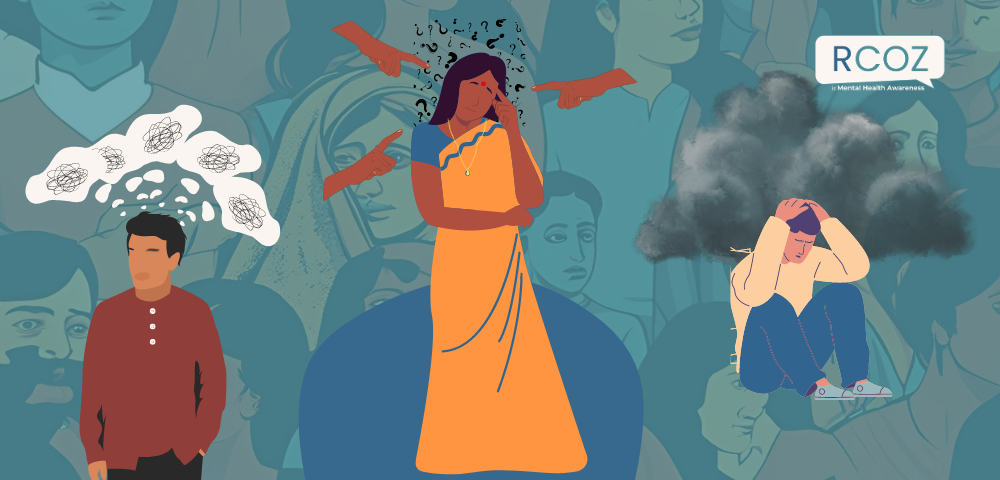It was a beautiful, sunny day, yet I felt a chill when I heard the devastating news. A young, accomplished South Asian woman, a mother of two, had taken her own life. On the surface, they appeared to be the perfect family—both husband and wife holding high-paying jobs, and their two children attending Ivy League schools. However, beneath this image of success, the woman had been silently battling mental health issues. Tragically, she never sought help, held back by the stigma surrounding mental illness in the South Asian community.
As I started researching suicide and mental health within the South Asian population, I discovered countless heartbreaking stories. Many lives, especially of younger generations, have been cut short because their mental health struggles were ignored, dismissed, or hidden due to shame and cultural pressure.
One father shared his story:
“Xyz, my eldest son, was quiet for the past few months. We thought it was just teenage issues, especially since he had finished his college applications. We had no idea he was silently struggling.”
Another community member recounted:
“When I was younger, we used to hang out with a wonderful South Asian family. Their son was under immense pressure from his father, pushed to take college-level courses in the 7th grade. By the time he died by suicide, it was clear to many in the community that he needed help. Sadly, his father refused to acknowledge any issue. I also knew another devastating story of a South Asian boy who tragically shot himself in front of his father’s workplace.”
The Cultural Pressures Amplifying Mental Health Struggles
Many South Asians experience intense stress due to feelings of displacement and isolation when living in a new country. Separated from their cultural roots and facing language barriers, they often struggle to fit into a society with different values and norms. The pressure to succeed, coupled with a sense of not fully belonging, further exacerbates feelings of isolation and mental health issues within the community.
In vulnerable situations, many individuals don’t know where to seek help, while their families view mental illness as a burden or disgrace. Financial barriers, along with the shame, stigma, and reluctance to share mental health struggles with friends, family, or society, prevent many from seeking professional assistance.
“South Asian Americans come from an achievement-oriented culture. Failure is not an option. The flip side of this is that mental health disorders are viewed as personal failures, and seeking treatment is seen as a sign of weakness.” – Anonymous
One professional echoed similar sentiments:
“Mental health issues exist everywhere, but what I’ve observed with South and East Asians is unparalleled.” – Anonymous
The Stigma of “What Will People Say?”
Sahaj Kaur Kohli, author of But What Will People Say?, emphasized the cultural pressures that exacerbate mental health stigma in her interview with CNN:
“We care so much about what others will think that we forget about those within our families and communities who might be suffering.”
“The feeling of guilt is the biggest issue I hear from children of immigrants. Navigating guilt. How guilt motivates us to not do the thing we want. How it motivates us to revert to behavior that might not be good for us. How guilt leads to shame. Guilt for having more access to resources and opportunities than our parents or our family abroad.
Guilt for being too American. Guilt for not being American enough. Guilt for not being enough of whatever our cultural identity is. Guilt for setting boundaries. Guilt for not setting boundaries. Guilt for picking the partner that we want to have. Guilt for choosing a different career path.”
Dr. Grace Ma, Associate Dean for Health Disparities, in her lecture at NIMHD (National Institute on Minority Health and Health Disparities) highlighted alarming and devastating statistics that challenge the misconception that mental illness is rare among Asian Americans. Suicide is one of the leading causes of devastating deaths in Asian Americans, with the highest rates occurring among those aged 20-24. Asian American women aged 65-84 also have the highest suicide rate compared to other racial and ethnic groups.
There is a well-documented link between mental health conditions and chronic diseases, yet Asian Americans often express emotional distress through physical symptoms, further complicating diagnosis and treatment. This tendency to show mental health issues as physical problems can delay or prevent individuals from receiving proper care.
Urgent Statistics on South Asian Mental Health – SAPHA (South Asian Public Health Association)
- 1 in 5 US South Asians report experiencing a mood or anxiety disorder in their lifetime.
- US South Asians often express greater stigma toward mental illness compared to other ethnic groups.
- Many South Asians experience psychological distress through physical symptoms, making diagnosis difficult.
- South Asian youth in the US are at higher risk for suicidal thoughts and behaviors compared to other minority groups.
Despite these troubling trends, there is little to no published data on schizophrenia or bipolar disorders among US South Asians, leaving significant gaps in understanding and addressing mental health needs within the community.
Let’s prioritize Mental Health
The devastating stories and startling statistics make one thing clear: addressing mental health stigma within the South Asian community is an urgent necessity. Without open conversations and increased access to mental health resources, more lives will continue to be unnecessarily lost.
To dismantle this stigma, we must foster environments where mental health issues are recognized, accepted, and treated without shame. It’s time to prioritize the well-being of individuals over cultural expectations and encourage those who are suffering to seek help without fear of judgment.
For privacy purposes, no names have been mentioned.

